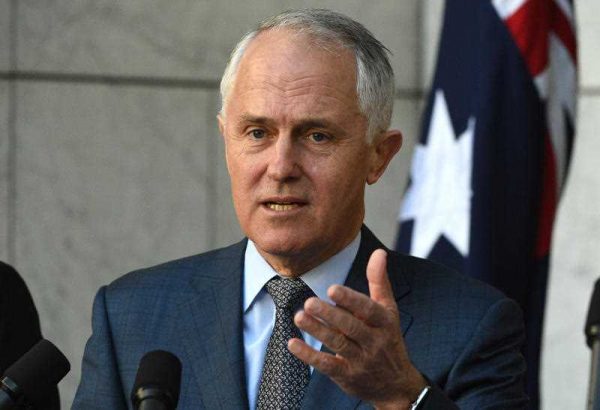In choosing the United States, Tony Abbott meant American values and its powerful military. For Abbott the success and stability of Asia — and in turn Australia’s success and stability — was due to US economic and military power. In his view, the norms, institutions and niceties of the regional environment were largely a useful fig leaf. Sometimes they helped, but they could never replace the real basis of regional security — United States power.
Abbott worried that Washington’s military authority was being directly challenged by Beijing’s military spending and assertive behaviour. This was compounded by a lacklustre and aloof White House. As a way to encourage the United States to regain its confidence, Abbott sought to build up Australia’s military capabilities and reach out to fellow US allies.
Most notably, preparations were put in place for a historic deal to buy Japanese submarines. There was even mention by loose-lipped Australian and Japanese officials of the A-word (alliance). That may not have been the direct ambition, but the path towards a common security relationship was certainly an option if the United States did not seek to reassert itself in the region.
For the new Prime Minister Malcolm Turnbull, to choose the United States means to embrace American ideas and the regional order it has helped build in Asia. For Turnbull this order has a value in its own right that is distinct from the specific capabilities of the US government.
In Turnbull’s view, the United States is a vital player in a regional order, rather than the sun around which the system revolves. Emerging powers may become threats and challengers, but their growth is not automatically a risk. The more these states adopt the norms of the region, such as free markets and peaceful dispute resolution through the WTO or the UN, the less their development is a concern.
Power still matters to Turnbull. He is fond of quoting Thucydides’ famous Melian dialogue. As he said in a recent interview, ‘the strong do what they will and the weak suffer as they must … That is what the whole international order is designed to stop — to ensure that there is a rules-based approach to international relations, and it’s very important to stand up for that’.
Turnbull sees the same concerns about power based struggles in Asia as his predecessor did — particularly in the South China Sea. Both men would agree Thucydides captured the enduring impulse by strong states to dominate. But where Tony Abbott believed the only way to respond was through deterrence by a stronger state, Australia’s new leader seems to believe we can overcome this challenge through a wider range of means. With the right institutions, norms and practices of international politics in place, the region can prevent strong states from aggressively pursuing their interests to the detriment of weaker states. Or at least curb the worst excesses of such behaviour.
As prime minister, Turnbull will continue to ensure Australia remains a close ally of the United States. Washington’s power remains the best way to re-enforce and support the system, helping to keep changes within the existing order, rather than against it. But because power and order are not synonymous for Turnbull, there are areas where what is good for the US might not be good for the region (which would be an oxymoron in Abbott’s world).
So Turnbull will seek to more clearly distinguish American interests from those of Australia and those of the wider region. He is likely to be more welcoming of initiatives such as the Asia Infrastructure Investment Bank, an initiative that split his predecessor’s cabinet in two. Likewise, he will want to continue to build links with states who can support the regional order, with less regard for whether they are US allies. So New Zealand was Malcolm Turnbull’s first official visit, a country with similar ideas and concerns to Australia, but who famously abandoned the US alliance in the mid-1980s.
None of this is to suggest Australia will ever ‘choose’ China over the US. But its change in leadership will shift what is implied by ‘choosing’ the United States. According to the former leader Tony Abbott, US power was all that mattered. According to the new Prime Minister Malcolm Turnbull, the order the United States built has a value in its own right, one that might still stand, even as US power declines.
Australia has had four prime ministers in the last four years. None has had a significant impact on the direction of national foreign policy. Structural factors and a heavy bipartisan straightjacket constrain innovation and debate. Still, the latest change in leadership does suggest a slight re-evaluation of the hierarchy and meaning of key factors in the national policy mix.
This is unlikely to cause much change in the short term. In the medium to long term — should Turnbull last that long — the change could lead Australia towards a more regional and order-centric approach.
Andrew Carr is a Research Fellow in the Strategic and Defence Studies Centre at the ANU. His most recent book is Winning the Peace: Australia’s campaigns to change the Asia-Pacific (MUP, 2015).

